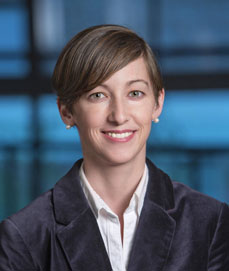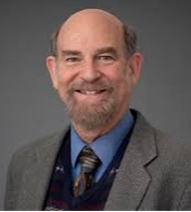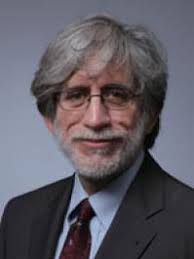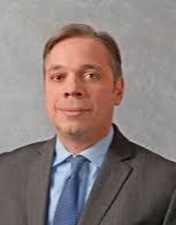|
Now is the time to submit your nominations for 2021 OHBM Awards. To inspire you, we are highlighting some of the outstanding winners from this year’s meeting. This year’s annual meeting was unique in many ways. Uncertainty about whether the meeting would happen was followed by a remarkably fast reorganization in order to hold the meeting online with a complex time schedule. One event that was not missing in the program was the traditional award ceremony that recognized the work of individuals who have changed the scientific landscape of human brain mapping. Inspired by their nomination letters, we honor OHBM 2020 award winners and their achievements: 2020 Early Career Investigator Award Winner: Danielle Bassett  Danielle Bassett Danielle Bassett Danielle Bassett received her PhD in physics in 2009 and after only 10 years, she is now a full professor at the University of Pennsylvania and has published over 240 peer reviewed articles. Her top-cited paper on small-world brain networks has received over 1,800 citations. In addition to the OHBM Early Career Investigator Award, she has also received the Erdos Renyi Prize in Network Science, a National Science Foundation CAREER award and a MacArther “genius” fellowship, amongst others. Danielle Bassett’s laboratory, the Complex Systems Group at the University of Pennsylvania, combines theory and tools from bioengineering, physics, electrical engineering, neurology, psychiatry and philosophy. Her team’s translational, interdisciplinary research has enabled them to explore the human thought process through investigations of how we learn and how this is underpinned by the flexibility of brain network dynamics. Her interdisciplinary approach applies new physically-informed metrics and null models for spatially embedded systems to look at networks at different scales (from cellular to systems) in order to inform clinical medicine and societal interventions. Danielle and her lab also contribute to software packaging and science outreach events. Danielle gave the opening lecture at OHBM2019 and participated in the mentoring symposium organized by the OHBM student/postdoc special interest group. From musical notes to neural nodes, you can learn more about Danielle Bassett’s career and aspirations at ScienceMag. 2020 Education in Neuroimaging Award Winner: Robert Savoy  Robert Savoy Robert Savoy Educational programs are a key part of the success of OHBM. Before the OHBM meeting in 1996 in Boston, Dr. Robert L. Savoy organized an educational workshop on fMRI attended by 600 of the 900 meeting attendees. The success of this inaugural course showed the high demand for educational programs. These have continued annually with the still highly-attended workshops alongside each OHBM meeting. Robert’s very first course was offered at the MGH NMR Center in October of 1994, and it was envisioned that the market for an introductory fMRI course would soon be exhausted. In contrast, the continual advances in fMRI and the general excitement associated with the technology meant that it reached an ever-expanding range of disciplines, increasing the pool of interested students. As the field has grown, so too have Robert’s educational offerings. Since 2007, Robert has organized an annual two-week Multi-Modality course; this has in turn generated another short course on connectivity. Robert is a rare scientist who devotes almost all of his efforts to education. His courses have had a profound impact on the career trajectory of many of our colleagues, including many active and leading members of the functional imaging community around the globe. A large fraction of the leaders in the field have attended his course – receiving their first instruction on fMRI and neuroimaging there. Peter Bandettini, Ph.D., Director of Functional Magnetic Resonance Imaging Core Facility (FMRIF) collected the following quotes:
2020 Mentor Award Winner: F. Xavier Castellanos  F. Xavier Castellanos F. Xavier Castellanos In her nomination letter, Lucina Q. Uddin describes Francisco Xavier Castellanos as “a winner with great mentoring values, guiding his lab members to become independent thinkers and scientists. He is a tireless mentor and teacher. He proposes clear goals with defined timeline and expectation along the way and he predicts correctly. He shows a clear vision of a career path and best opportunities that should not be to define a path for new lab members. He is able to teach the art of “grantsmanship”, one that every scientist must master. Xavier is always there for his trainees, current and past. Trainees can always count on Xavier to submit a letter of recommendation at a moment’s notice, which is a great aid to apply for fellowships, grants, and positions as the opportunities arise. He is always happy to comply with letter requests, no matter how frequent. He also remains, at every career transition, a sounding board, providing clear-headed, rational and thoughtful advice.” Lucina mentioned one particular anecdote that represents her experience of being supervised by F. Xavier Castellanos: “One particularly salient example of Xavier’s unconditional and enthusiastic support for his trainees comes to mind. One day, in a conversation with Bharat Biswal, we were tossing around the idea of trying to collect neuroimaging data from a split-brain patient in order to test a theory we had about functional connectivity. Without a fuss, Xavier funded the trip for me and a colleague to fly across the country, collect data from this unique patient, and spend months analyzing the data (though this project was unrelated to any of his grants at that time). This spontaneous trip led to a number of interesting case studies (Nomi et al. 2019, Uddin et al. 2008), and remains one of my favorite Xavier memories. The fact that he has always been enthusiastically supportive of whimsical projects has made science fun over the years.” What particularly distinguishes Xavier from other senior successful scientists is his generosity, intellectuality and personality. He clearly has had a positive impact on a number of young scientists. Indeed, it is worth noting that three of his previous mentees (Lucina Uddin, Mike Milham, and Daniel Margulies) have received the OHBM Early Career Award. Another example of the way in which Xavier exemplifies the values of collegiality and building community through acknowledgment and recognition is in his authorship practices. He never hesitated to add junior scientists as co-authors on manuscripts, and readily gave up senior authorship positions to his trainees, as he always practices the maxim of giving credit where credit is due. Xavier has been a proponent of open science before open science was a thing. His lab was one of the earliest to get involved in grass-roots data sharing initiatives such as the Autism Brain Imaging Data Exchange, the ADHD 200 International Neuroimaging Data-sharing Initiative, and the Enhanced Nathan Kline Institute – Rockland Sample. In fact, he is acknowledging that so much data are collected and so many people are needed to analyze them, so he favors giving others the opportunity to use their expertise without worrying about authorship or credit or restrictions. This kind of radical data sharing has inspired countless researchers worldwide, who are beginning to follow a similar philosophy. Xavier’s lab and pioneering radical data sharing initiatives set the stage for the current climate of open science and collaboration that permeates the field today. 2020 Replication Award Winner: Andre Altmann  Andre Altmann Andre Altmann Andre received the replication award for his paper titled ‘A comprehensive analysis of methods for assessing polygenic burden on Alzheimer’s disease pathology and risk beyond APOE’, Altmann et al., Brain Communications (16th December): In this paper, Andre Altmann and colleagues attempted to replicate results from “Polygenic hazard score, amyloid deposition and Alzheimer’s neurodegeneration”, published in early 2019 by Tan et al.. The original paper was proposing a link between a polygenic hazard score (PHS) and amyloid deposition (from amyloid PET) beyond APOE. Andre Altmann and colleagues proposed to account for APOE4 status (carrying or not) instead of APOE4 burden (number of copies). Beyond this difference in analysis, Altmann et al. went further to show that their analysis better accounted for APOE4 than the initial study. While using subjects from the same database (ADNI), Altmann et al. were not able to replicate the results from Tan et al. (2019). APOE4 is the strongest common genetic risk factor for the sporadic late onset of Alzheimer's disease and is known to be associated with amyloid deposition in the brain. Therefore, it is of importance to disentangle the effect of APOE4 from the polygenic hazard score in order to avoid correlation of no interest in the results. This would explain part of the previously observed strong link between their proposed Polygenic hazard score (PHS) and amyloid deposition. This reanalysis questions the conclusion from Tan et al. (2019) that PHS influences longitudinal cognitive decline in regard to the model. Altmann et al. adjusted their linear mixed effects model and the replication study shows that small differences in modeling decisions have a dramatic impact on the results. This study also rectifies a result that could have had a large impact in the field as PHS could have been used for follow up study in the Alzheimer's disease community without proper initial support. 2020 Open Science Award Winner: Michael P. Milham  Mike P. Milham’s efforts in open data, open resources and collaborations are numerous. They impact both clinical and basic science neuroimaging communities. In just a decade, starting with the aggregation and publication of the 1000 Functional Connectomes Project (FCP-1000), Mike has:
The above initiatives have had a substantial impact on the neuroscientific community both in terms of immediate/direct (e.g., publications) and sustained/indirect impact (e.g., cultural change). Mike has been the driving and inspirational force of a host of important open science initiatives that have helped change the landscape of human and non-human primate neuroimaging. Once again, we congratulate all the OHBM 2020 winners and nominees. We wish them a great year of science. We hope we have inspired you to look around you, consider your own mentors, colleagues, trainees, friends and neuroimaging heros to might be an appropriate candidate for one of the 2021 OHBM Awards. The OHBM website has all the details regarding eligibility, and required information for each of the award categories; just select the award by name and there you will find the link to the submission webform. The nominating process is reasonably easy, all online and waiting for your submission. Remember, our ability to inclusively honor members of our diverse community is directly dependent upon you submitting deserving candidates!
0 Comments
Your comment will be posted after it is approved.
Leave a Reply. |
BLOG HOME
Archives
January 2024
|
 RSS Feed
RSS Feed